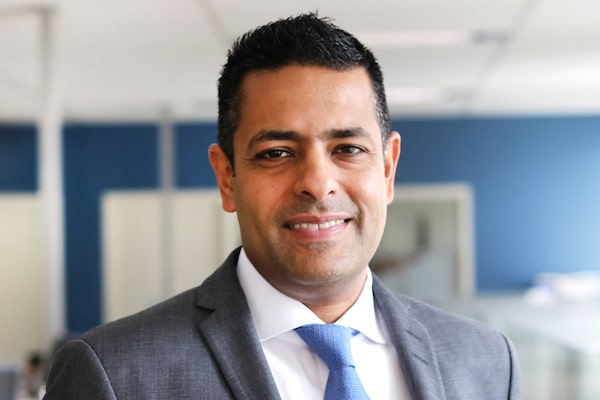
Getty Images
With the sharing economy booming, Definity Financial is leveraging the power of the internet of things to more accurately predict risk and prevent losses
Have you stayed in a vacation rental, instead of reserving a hotel room?
Have you used an app to book a ride, instead of hailing a cab?
If you’ve used services such as Airbnb or Uber, you’ve participated in the sharing economy, a business model driven by peer-to-peer sharing of goods and services.
The central role insurance plays in making these models functional is often underappreciated. Would you rent your apartment or car to a stranger without the financial backstop provided by insurance? A key part of the comfort you feel in an Uber is because the rides are insured.
Definity Financial Corp. DFY-T is the Canadian insurer for a number of sharing economy companies, such as Uber, Turo and Cornershop. When it became the official insurance provider for Turo, a car-sharing app, Economical Insurance, a subsidiary of Definity, guaranteed liability insurance to both the hosts lending their cars, and the guests borrowing them, for up to $2-million. Cornershop by Uber, and Uber itself, receive similar coverage in most provinces.
Obaid Rahman, senior vice-president and chief underwriting officer of commercial insurance, says that central to these partnerships is the extensive use of data to create usage-based products and advanced risk management practices.
The experience and expertise that Definity is gaining with these insurance partnerships has positioned the organization well for tackling the next leap in insurance underwriting by leveraging data from IoT technology.
IoT technology can be tied to almost any object – from cars and bikes, to apartments, homes and offices – making it possible to analyze data related to their usage. Sensors can collect information such as driving speed, location data, and pipe leaks – all of which help insurance companies more accurately assess risk levels.
The applications of IoT data for insurance are immense. Telematics in the automotive space can measure everything from braking behaviours to the time of day a driver is on the road. IoT technology has the potential to help government agencies respond faster to natural disasters, empower homeowners to better track electricity usage and aid cities in easing traffic congestion. “We are in the early stages of truly utilizing this plethora of data, there’s so much untapped potential to look forward to,” Rahman says.

Obaid Rahman, senior vice-president and chief underwriting officer of commercial insurance, Definity Financial Corp.Supplied
IoT data, like fuel consumption, distance travelled and driver performance and operation, can be used by Definity, or any professional advisors, to check for potential risks and compliance concerns. Depending on the situation, Definity can use this data to respond to claims.
Rahman says collecting data can allow Definity to craft personalized policies that offer better coverage at a lower cost – which is becoming more important with time. “[Insurance] costs related to physical damage have been on the rise in recent years, driven by more expensive components in cars,” he says. “Climate change has also increased the frequency and severity of weather events and the subsequent claims costs they incur. Mitigating risk will become a key component to keeping insurance costs affordable.”
Definity’s experience representing top sharing economy companies in Canada makes it well-positioned to take a leading role in the marketplace. It has already built the underwriting expertise to use IoT data, and because of this, it has a leg up when it comes to risk management and safety.
Data collected through apps and IoT devices also provide a level of predictability, transparency and trust among users, which research from the Karlsruhe Institute of Technology has shown is a necessary price determinant for sharing economy brands such as Airbnb. Consumers know they’ll be protected in the event of a dispute or accident, sharing economy workers have clear expectations and service providers have a way to keep track of usage for billing.
Data from the Insurance Bureau of Canada (IBC) shows that wind, storms, floods and other catastrophic events have increased insured Canadian consumer losses by more than 430 per cent since 2002.
“The biggest opportunity is really in how you can use this data, which allows you to pick up things you wouldn’t know otherwise,” Rahman says. “Do [your drivers] speed? Do [they] not speed? What is the condition of your home?
“Because you have this information, you have better predictability of what type of behaviour and conditions could lead to a loss. This allows insurance companies to work with clients to improve risk mitigation – which is essentially trying to prevent the loss from happening in the first place.”
Definity is ready to meet and serve constantly changing consumer needs, merging established market experience with the agility of a new brand. The company, Rahman says, is proud to lead in the digital insurance marketplace, and it is well-equipped with the resources and vision to tackle future market trends.
At the core of its initiatives is forming strong, long-term relationships with partners. “We want our partners to trust us, work with us and know we’ll adjust the insurance model as necessary,” Rahman says. “[Our] focus is on building mutually beneficial relationships and creating a culture of collaboration and trust.”
Advertising feature produced by Globe Content Studio with Definity. The Globe’s editorial department was not involved.